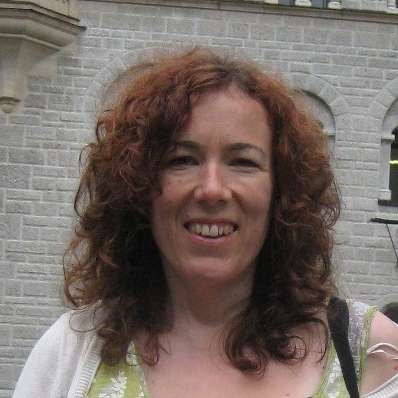In my notes for this evening’s concert by Renaissance, a chamber choir founded by the young singer, conductor and composer Ben Rowarth, one word kept recurring – “thoughtful”. This was a programme that had been carefully put together, and which was performed without any unnecessary flashiness or attempts to impress. The result was an evening of outstanding musicality and maturity; it was hard to believe that Ben Rowarth is just 20, and that almost all the singers were under 30. In a city where there is no shortage of chamber music, and where the same singers appear in multiple choirs, Rowarth's distinctive style made Renaissance stand out from all the other smart young student/graduate choirs: the fact that the Cathedral chapter house was full shows what an impressive following they already have.
Sharing the conducting with distinguished guest Martin Neary, formerly director of music at of Winchester Cathedral and Westminster Abbey, Rowarth mixed music from the renaissance, the early 20th century and contemporary works, in a fairly sombre programme that reflected both on our own human mortality and on Christ’s crucifixion, although beginning and ending with more cheerful pieces to lighten the mood.
Rowarth’s singers began with a stately and confident performance of William Byrd’s Laudibus in Sanctis, that immediately demonstrated the choir’s exquisite blend of voices, and suited the big acoustic of Durham Cathedral’s chapter house. The dance-like passages towards the end of the piece were still exciting even at the slower tempo, and the closing Alleluia section ended gently. The same simplicity and beautiful legato singing was applied to the subsequent work by Byrd, his Ave Verum, bringing a new freshness to a well-known work. The other early work that Rowarth conducted was Alonso Lobo’s Versa est in Luctum, a motet often included in settings of the Requiem Mass, most famously by Lobo’s contemporary and fellow-Spaniard, Victoria. Lobo’s setting had the same passionate intensity as Victoria’s, although at times this was lost in this evening’s performance and the music seemed to drift a little aimlessly.
The early works in Martin Neary’s half of the concert came from Tallis and John Taverner. Tallis’s Miserere nostri was sung with precision, and perfectly balanced, so that we could hear all the complexity of the canonic writing working through the parts. John Taverner’s motet Dum Transisset Sabbatum tells of the women visiting Christ’s tomb to anoint his body; the plainsong sections were sung in perfect unison by the tenors, and the long, flowing Alleluias grew more wonderful with each repeat.
Martin Neary’s section was built around the works of the similarly named living composer Sir John Tavener, with whose music Neary has been closely associated over the years. Tavener’s Song for Athene was conducted by Neary at the funeral of Diana, Princess of Wales. Originally written in memory of a young Greek friend of Tavener, it combines Orthodox liturgy with lines from Hamlet. The basses held an impressively low drone, without losing tone or pitch, while the upper voices sustained a deceptively simple and mesmerising harmony, typical of Tavener’s writing. Exhortation and Kohima were even simpler, almost hymn like, with echoes from a smaller group positioned behind the audience; a piece that was particularly effective in the Chapter House.
The most recently written piece in the programme was Ben Rowarth’s It is a thing most wonderful, setting the hymn by William Walsham How. The piece retained the sense of the simple child-like hymn, but combined this with beautiful, yet surprising harmonies that carefully matched the drama of the words. It also tested the vocal range of the singers, from a perfectly executed pianissimo top C in the sopranos, down to a low B for the basses on the piece’s lovely warm ending. A cool, unexaggerated performance of Eric Whitacre’s Sleep demonstrated the same degree of vocal control, the final repeated “sleep” disappearing to nothing.
The choir states that they specialise in Renaissance polyphony and 20/21st century choral works, and the 20th century was represented this evening by Warlock and Harris. Warlock’s Corpus Christi is a spooky little piece using an old English allegorical poem about a maid keeping watch by her dead knight’s tomb. Soloists Charlotte La Thrope and Hugo Hymas both had wonderfully clear, even voices that suited the medieval flavour of the piece. They were accompanied by a wordless weeping motif from the choir, although at times the choir could have been a little quieter.
After all the pieces about death, the concert closed with William Harris’s great motet for double choir, Faire is the Heaven. Martin Neary took it at a majestically slow pace that would have left weaker singers than these gasping for breath, and he saved up the volume and excitement for the central passage that describes the fiery angels in heaven, when the choir were let loose, to thrilling effect, before coming back under control to a thoughtful, calm ending that reflected the mood of the whole evening.


